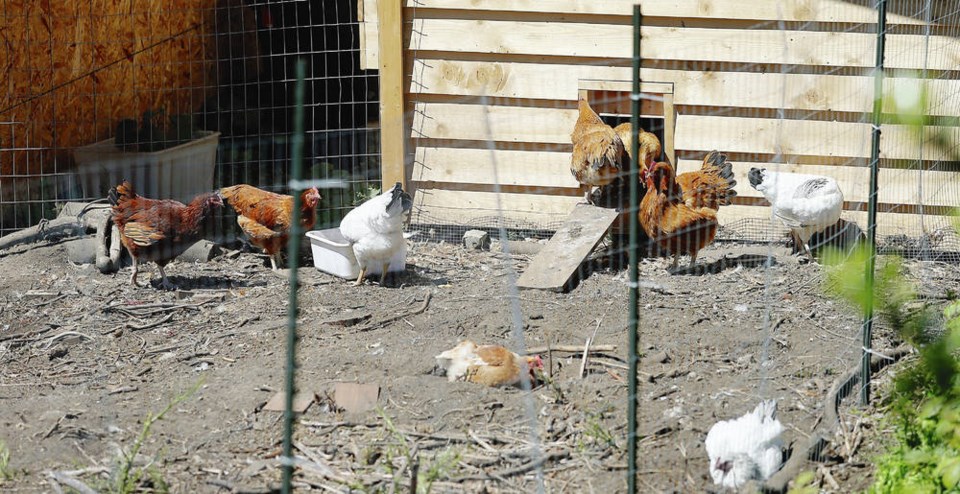Toronto has them. Vancouver, Nanaimo, Oak Bay and Victoria have them. But backyard chickens are on their way out of residential areas in Qualicum Beach.
Council voted unanimously to end a three-year pilot project allowing backyard chickens, citing concerns about pests such as rats, noise, odours and loose chickens.
The move comes despite a staff report calling the number of complaints “minimal” and recommending chickens be allowed to remain in residential areas of the community of 8,900.
Daniel Sailland, the town’s chief administrative officer, received permission from Mayor Brian Wiese to speak on the subject, saying his family has been part of the pilot.
“The participation in the project has been quite valuable from a young family perspective in Qualicum Beach,” he said.
“My kids are involved in 4-H and the learning has been absolutely fantastic, and the connection with 4-H and the ability to connect to agriculture in that way, although we’re in a more urban area, has really been a positive experience.
“The product is fantastic because I have never had better eggs.”
Their home has not seen an increase in rats, Sailland said.
Owners will have one year to relocate their hens.
Seventeen temporary use permits for chickens were issued during the pilot project, which started in 2017 and generated six to 10 complaints — similar to the numbers for cats, said the staff report, which noted the town’s enforcement officer receives 15 to 20 dog complaints for every one chicken complaint.
Coun. Teunis Westbroek dismissed the comparison with dogs, however, saying there are far more dogs than chickens in residential areas.
He said he opposes allowing farm animals in residential neighbourhoods because of problems with rats and racoons.
Coun. Robert Filmer agreed, and pointed to complaints about loose chickens that are not claimed.
B.C. municipalities typically limit poultry to a certain number of hens. Roosters are banned because they crow, and slaughtering is not allowed.
Victoria allows up to 15 hens and Esquimalt up to seven.
The number of chickens permitted in Nanaimo depends on the size of a property.
Ian Fraser, senior animal control officer for Victoria Animal Control Services, cautions that chickens can be a lot of work.
“It takes time and effort to keep chickens. They are messy.”
Owning hens means going out in the pouring rain to clean out coops. It requires building and maintaining coops in good order and ensuring they are designed to suit chickens, he said.
The term pecking order accurately reflects chicken society. The senior chicken will need a higher roost than the others or hens may pick on each other, he said.
Fraser hears complaints from owners about animals breaking into a coop overnight and killing their hens. Sometimes it’s a local dog, racoon or a mink, he said. “There’s a lot more mink around than people realize.”
Other complaints come in about odours, rats and flies in poorly maintained coops, as well as reports of chickens straying in a neighbourhood, he said.
Then there are noise complaints. People buy chicks, only to learn once the animals grow that they have a couple of roosters. Neighbours call to complain about the crowing. The family with the chickens may consider them pets and be reluctant to give them up, resulting in tickets for the owners.



